Lessons · Vocabulary · Grammar · Appendices · Texts
Grammar review · Present indicative
Regular formation
Grammar | ||||||
|---|---|---|---|---|---|---|
| -er verbs | -ir verbs | -re verbs | ||||
| parl… | fin… | vend… | ||||
| Subject | Ending | Example | Ending | Example | Ending | Example |
| Je | -e | parle | -is | finis | -s | vends |
| Tu | -es | parles | -is | finis | -s | vends |
| Il | -e | parle | -it | finit | - | vend |
| Nous | -ons | parlons | -issons | finissons | -ons | vendons |
| Vous | -ez | parlez | -issez | finissez | -ez | vendez |
| Ils | -ent | parlent | -issent | finissent | -ent | vendent |
Irregular verbs
Vocabulary review · Travel
| l’aéroport (m) | airport | ||||
| l’autobus (m) | bus | ||||
| l’avion (m) | aircraft, airplane | ||||
| les bagages | baggage | ||||
| le billet | (train, airplane) ticket | ||||
| le métro | subway, underground | ||||
| la poste | post office | ||||
| le taxi | taxi | ||||
| le ticket (de métro) | (subway) ticket | ||||
| le train | train | ||||
| la valise | suitcase | ||||
| la voiture | car | ||||
| Tu es d'où ? | Where are you from? | colloquial | |||
| D'où êtes-vous ? | Where are you from? | formal | |||
| Je suis de (d') … | I am from … | ||||
Dialogue
Culture · Vacations in France
Vocabulary · Geography
| le monde | the world | Chacun a le droit de vivre sur le monde. | Everyone has the right to live in the world. | ||
| Political geography | |||||
| la ville | town, city | ||||
| le village | village | ||||
| le pays | country | L’Allemagne est un pays démocratique. | Germany is a democratic country. | ||
| l'état (m) | state | ||||
| Natural geography | |||||
| le fleuve | river | L’Amazone est un fleuve d'Amérique du Sud. | The Amazon is a South American river. | ||
| la montagne | mountain | ||||
| le lac | lake | Le Léman est le plus grand lac alpin. | Lake Geneva is the largest alpine lake. | ||
| l'océan (m) | ocean | Cette île est perdue dans l’immensité de l’océan. | This island is lost in the vastness of the ocean. | ||
| Cardinal directions | |||||
| le nord | north | L’aiguille aimantée se tourne vers le nord. Il a voyagé dans le nord. Les plus belles fourrures viennent du nord. | The needle turns to the north. He traveled in the north. The best furs come from the north. | ||
| le sud | south | L’Espagne est au sud des Pyrénées. Orléans est au sud de paris. | Spain is south of the Pyrenees. Orléans is south of Paris. | ||
| l'est (m) | east | Le vent vient de l’est. | The wind comes from the east. | ||
| l'ouest (m) | west | Le vent souffle du ouest. | The wind blows from the west. | ||
Grammar · Simple future · Futur simple
There are three versions of the future tense in French, the futur simple the futur composé, and the futur antérieur(future perfect). One uses the future simple tense when referring to an action, certain to occur, in a time ahead of now.
Regular formation
To conjugate a verb in the simple future, one takes the infinitive and appends the right form of avoir, except for nous and vous which takes -ons and -ez:
Vocabulary | |||
|---|---|---|---|
| Subject | Ending | Conjugated verb | Pronunciation |
| je | -ai | volerai | |
| tu | -as | voleras | |
| il / elle / on | -a | volera | |
| nous | -ons | volerons | |
| vous | -ez | volerez | |
| ils / elles | -ont | voleront | |
Examples
Vocabulary · Airports and airplanes
| The airport | |||||
|---|---|---|---|---|---|
| l'aéroport (m) | airport | ||||
| le passeport | passport | ||||
| le chariot (de bagages) | (baggage) cart | ||||
| l'arrivée (f) | arrival | ||||
| le départ | departure | Le départ de l'avion à destination de Londres est annoncé. Le départ du train est retardé de dix minutes. Nous fixerons l'heure de départ à cinq heures. | The departure of the flight to London is announced. The departure of the train is delayed for ten minutes. We will set the departure time to five. | ||
| arriver (en avance / en retard) | to arrive (early/late) | On est arrivés à Paris vers 9 heures. | We arrived in Paris around 9 o'clock. | ||
| The terminal | |||||
| l'aérogare (f) | terminal | ||||
| la compagnie (aérienne) | (airline) company | ||||
| le billet (d'avion/simple/aller-retour) | (plane/one-way/round trip) ticket | ||||
| la classe tourisme la première classe | coach first class | ||||
| la porte | gate | ||||
| embarquer | to board | ||||
| Baggage | |||||
| les bagages (m) | baggage | Je vais vous aider à porter vos bagages. | I'm going to help you carry your baggage. | ||
| enregistrer (ses bagages) | to check in (one's baggage) | Les bagages peuvent être enregitrés jusqu'à la destination finale. | The baggage can be checked in until the final destination. | ||
| The airplane | |||||
| l'avion (m) | plane | ||||
| décoller le décollage | to take off take-off | Cet avion décolle à 17h. | This plane takes off at five. | ||
| voler le vol | to fly flight | also: to steal also: theft | Cet avion vole très bas. La plupart des oiseaux volent. Cet aviateur a volé près de deux cents heures. | This plane is flying very low. Most birds fly. This bomber flew nearly two hundred hours. | |
| le pilote | pilot | Ce pilote de ligne assure la liaison Paris-Pékin. | |||
| l'hôtesse (de l'air) (f) | flight attendant | ||||
| le passager | passenger | Il y a sur ce bâtiment cent hommes d’équipage et cinq cents passagers. | There are a hundred crewmen and five hundred passengers. | ||
| atterrir l'atterrissage (m) | to land landing | L’avion a dû atterrir à cause de l’orage. L'atterrissage de la sonde Huygens sur Titan a eu lieu le 14 janvier 2005. | The plane had to land because of the storm. The landing of the Huygens probe on Titan took place January 14, 2005. | ||
Supplementary vocabulary · Places
|
|
|
|
Supplementary grammar · Geography prepositions
Cities
À is used to say in, at, or to:
- Je vais à Paris.I'm going to Paris.
De is used to say from:
- Je reviens de Paris.I return from Paris.
Feminine areas
En is used to say in, at, or to for feminine geographical areas except cities:
- Je vais en France.I go to France.
De is used to say from for feminine geographical areas:
- Je reviens de France.I return from France.
- Je reviens d'Espagne.I return from Spain.
Masculine areas
Dans le is used to say in, at, or to for masculine regions, provinces, and states:
- Je vais dans le Limousin.I'm going to Limousin.
Au is used to say in, at, or to for masculine countries beginning with a consonant:
- Je vais au Portugal.I'm going to Portugal.
En is used to say in, at, or to for masculine countries beginning with a vowel:
- Je vais en Israël.I'm going to Israel.
Du is used to say from for masculine geographical areas beginning with a consonant:
- Je reviens du Limousin.I return from Limousin.
- Je reviens du Portugal.I return from Portugal.
D' is used to say from for masculine countries beginning with a vowel:
- Je reviens d'Israël.I return from Israel.
Plural countries
Aux is used to say in, at, or to if a plural article is part of the name of a country:
- Je vais aux États-Unis.I'm going to the United States.
Des is used to say from if a plural article is part of the name of a country:
- Je reviens des États-Unis.I return from the United States.
Supplementary vocabulary · Nationalities · Les nationalités
Nationalities are not capitalized as often in French as they are in English. If you are referring to a person, as in an Arab person or a Chinese person, the French equivalent is un Arabe or un Chinois. However, if you are referring to the Arabic language or Chinese language, the French would not capitalize: l'arabe, le chinois. If the nationality is used as an adjective, it is normally left uncapitalized: un livre chinois, un tapis arabe.
| Masculine | Feminine | English |
|---|---|---|
| allemand | allemande | German |
| américain | américaine | American |
| anglais | anglaise | English |
| australien | australienne | Australian |
| belge | belge | Belgian |
| birman | birmane | Burmese |
| britannique | britannique | British |
| cambodgien | cambodgienne | Cambodian |
| canadien | canadienne | Canadian |
| chinois | chinoise | Chinese |
| coréen | coréenne | Korean |
| écossais | écossaise | Scottish |
| espagnol | espagnole | Spanish |
| français | française | French |
| indien | indienne | Indian |
| indonésien | indonésienne | Indonesian |
| israëlien | israëlienne | Israeli |
| italien | italienne | Italian |
| japonais | japonaise | Japanese |
| malaisien | malaisienne | Malaysian |
| mauricien | mauricienne | Mauritian |
| néerlandais | néerlandaise | Dutch |
| philippin | philippine | Filipino |
| portugais | portugaise | Portuguese |
| singapourien | singapourienne | Singaporean |
| suédois | suédoise | Swedish |
| suisse | suisse | Swiss |
| thaïlandais | thaïlandaise | Thai |
| vénézuélien | vénézuélienne | Venezuelan |
| vietnamien | vietnamienne | Vietnamese |
Text
| Cet été, nous partirons en vacances au bord de la mer. Nous allons passer une semaine à Nice sur la côte d'Azur. Nous partirons en voiture et il y aura certainement beaucoup de bouchons sur l'autoroute. Nous nous baignerons le matin et je ferai des châteaux de sable avec mon fils. |
Exercises
French : Lessons · Vocabulary · Grammar · Appendices · Texts
.svg.png)
.svg.png)
.svg.png)
.svg.png)
.svg.png)
.svg.png)
.svg.png)
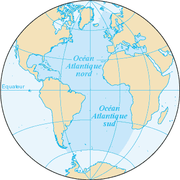
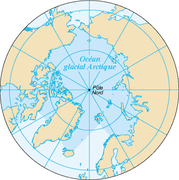
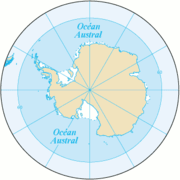
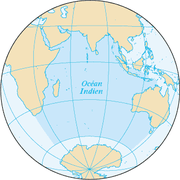

.svg.png)
.svg.png)
.svg.png)
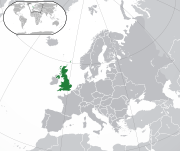
.svg.png)
.svg.png)
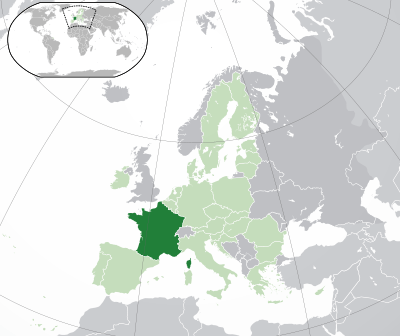
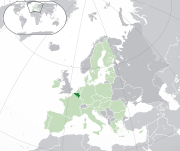
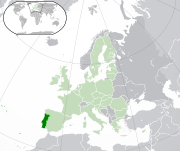
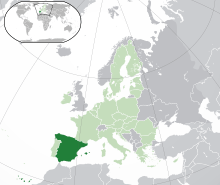
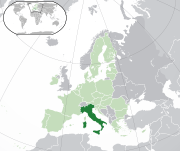
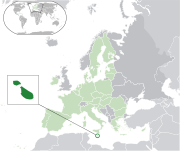
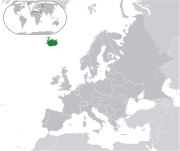
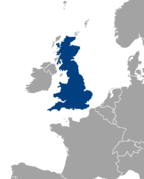
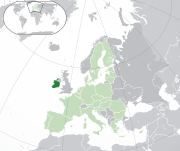
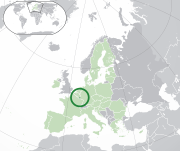
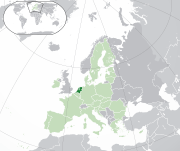
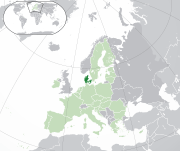
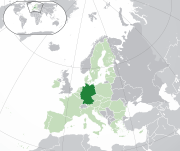
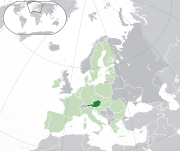

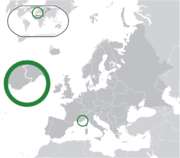
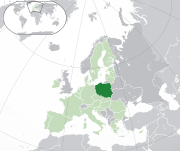
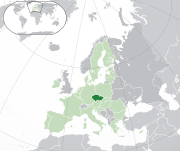
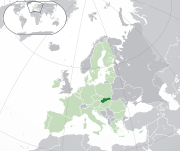
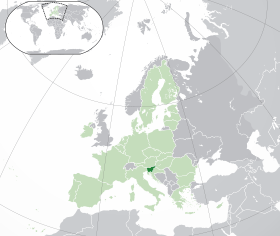
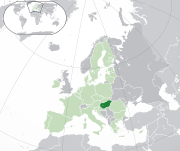
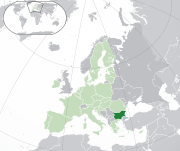
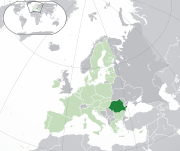
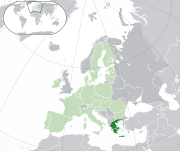
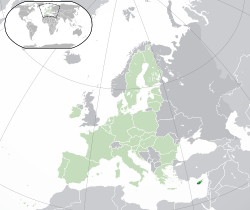

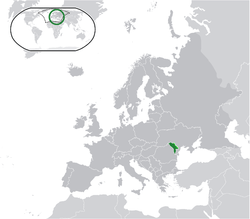
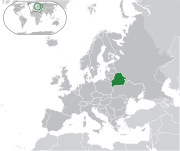
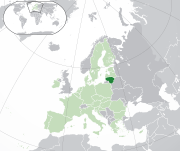
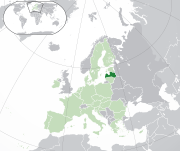

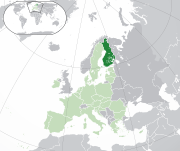
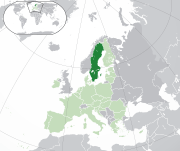
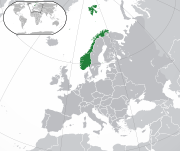
.svg.png)
.svg.png)